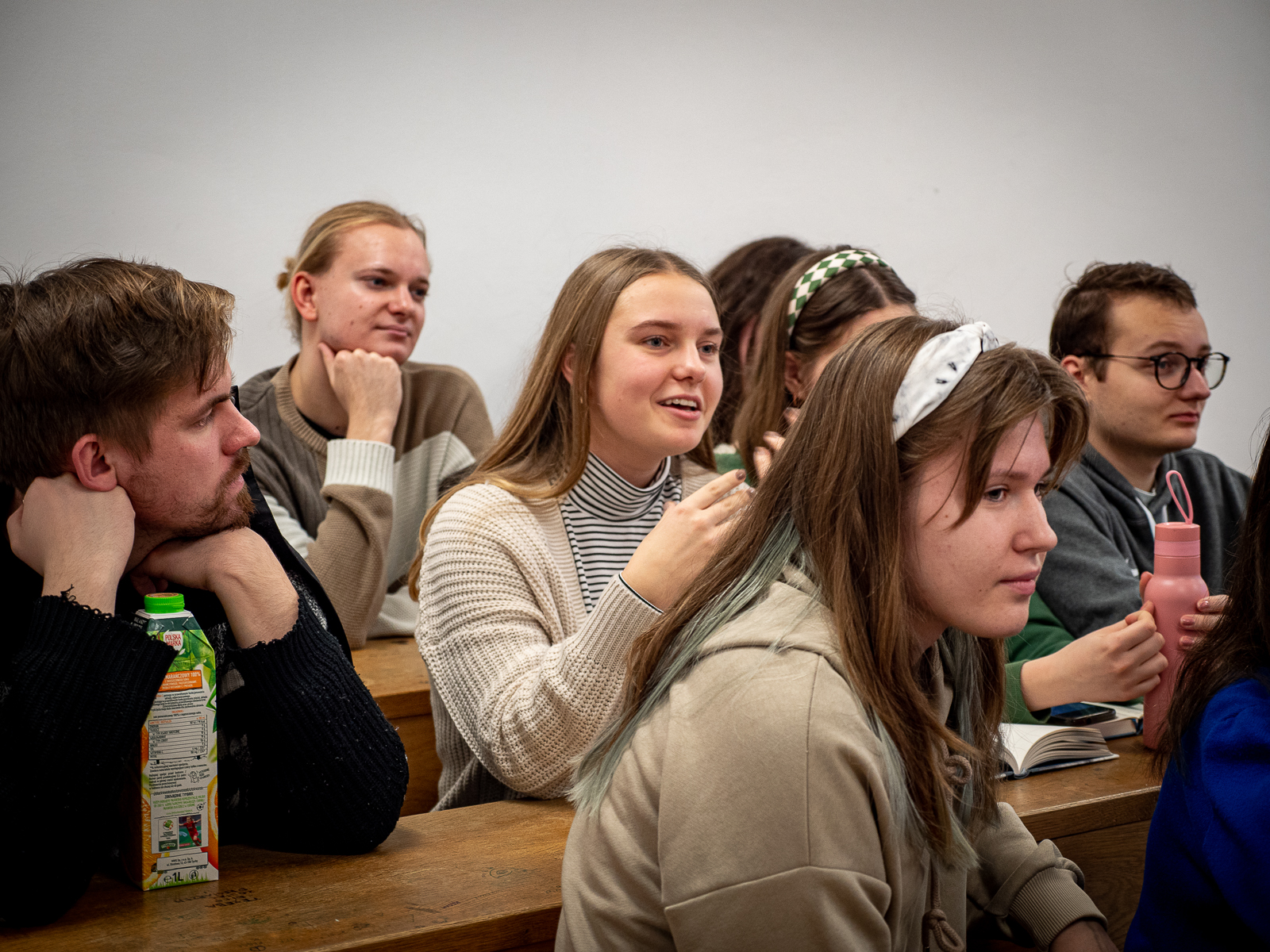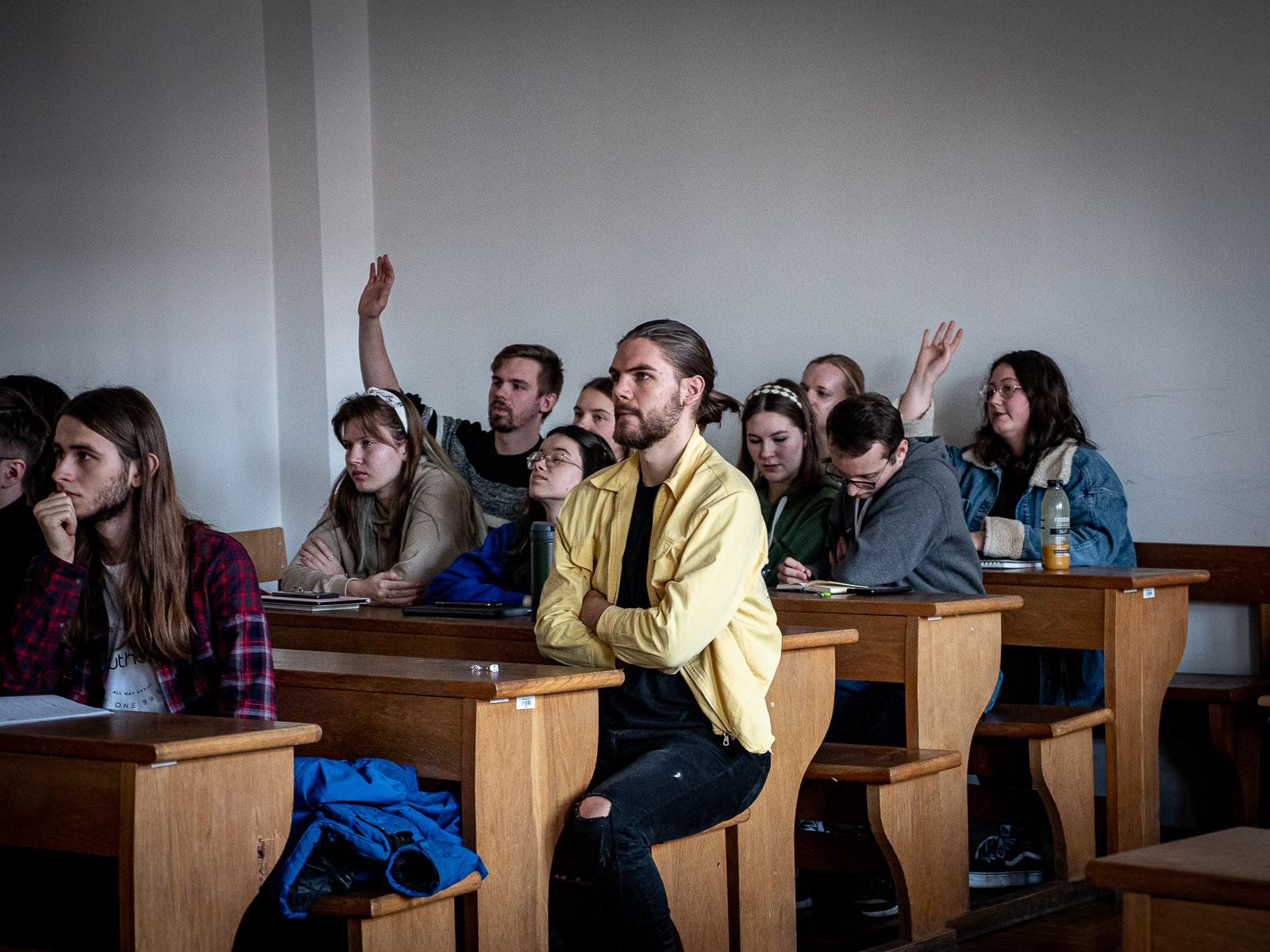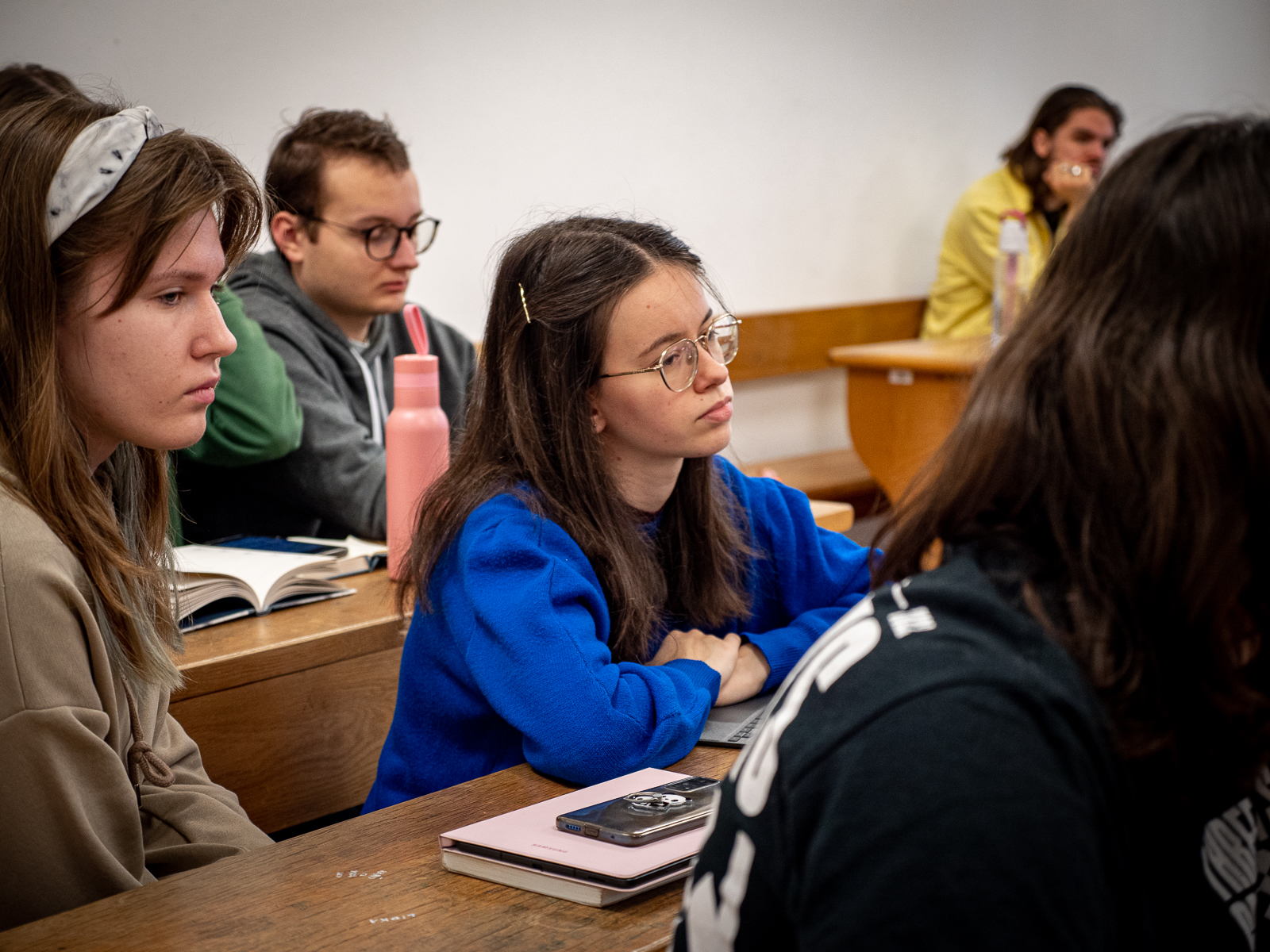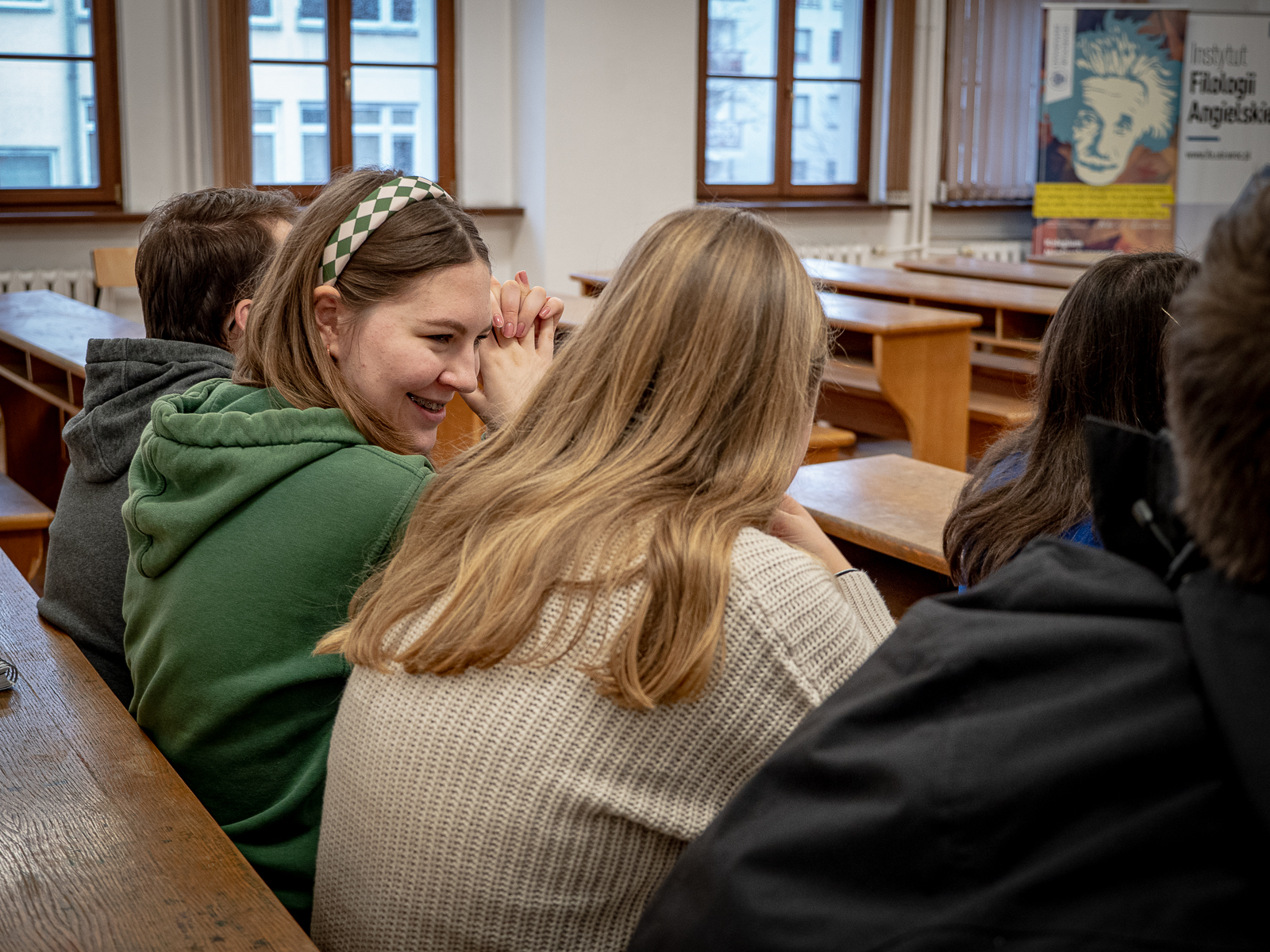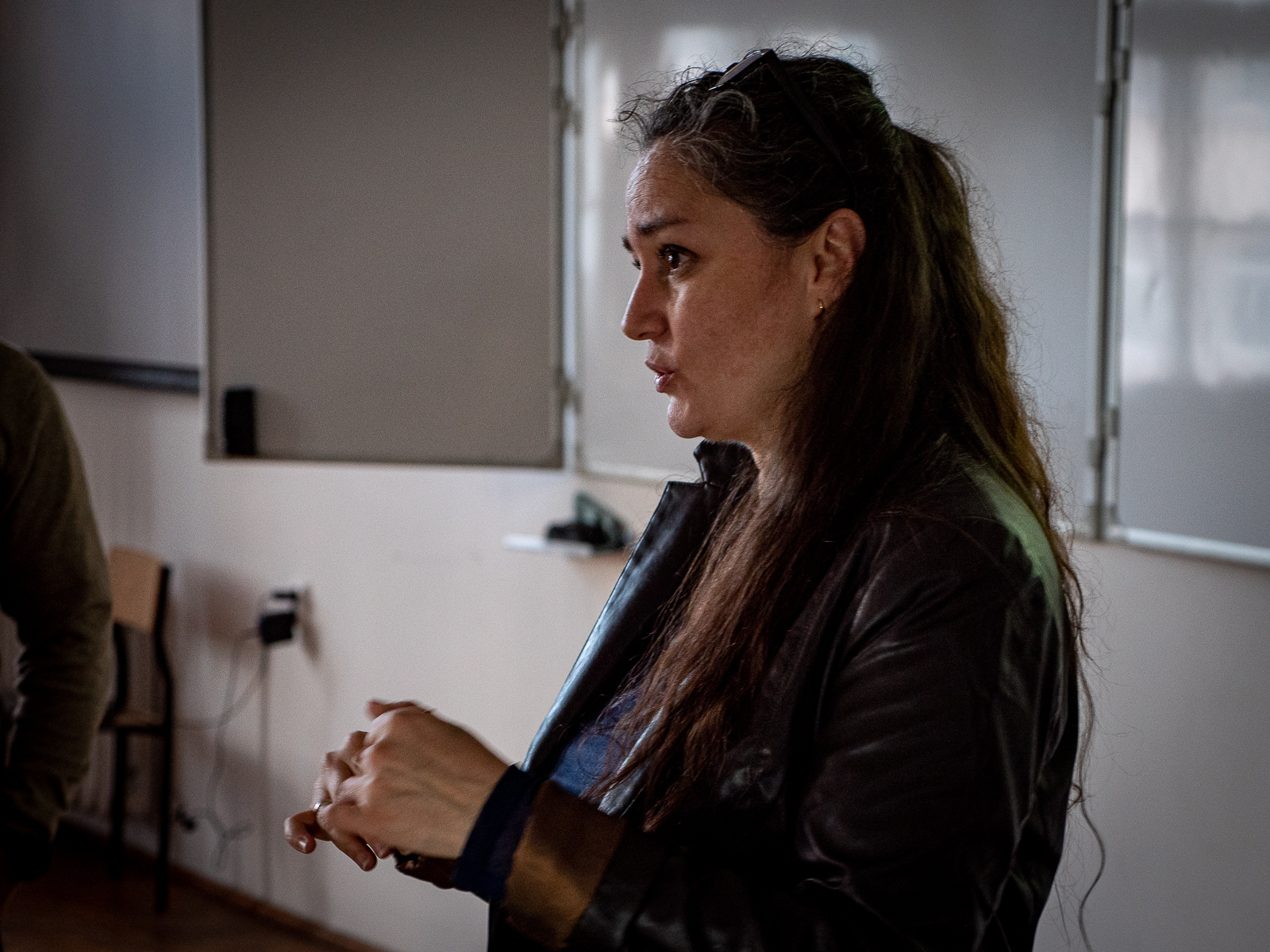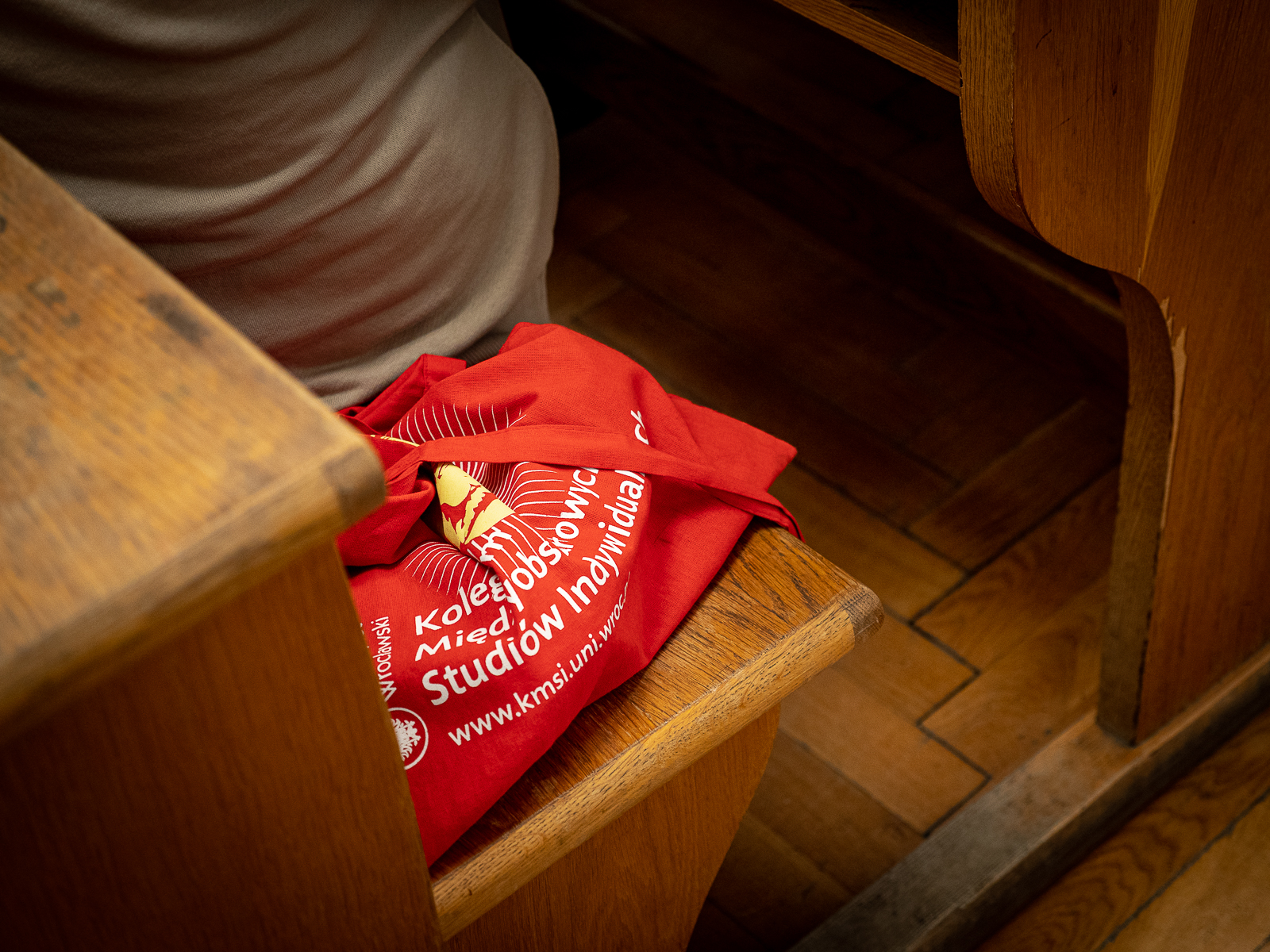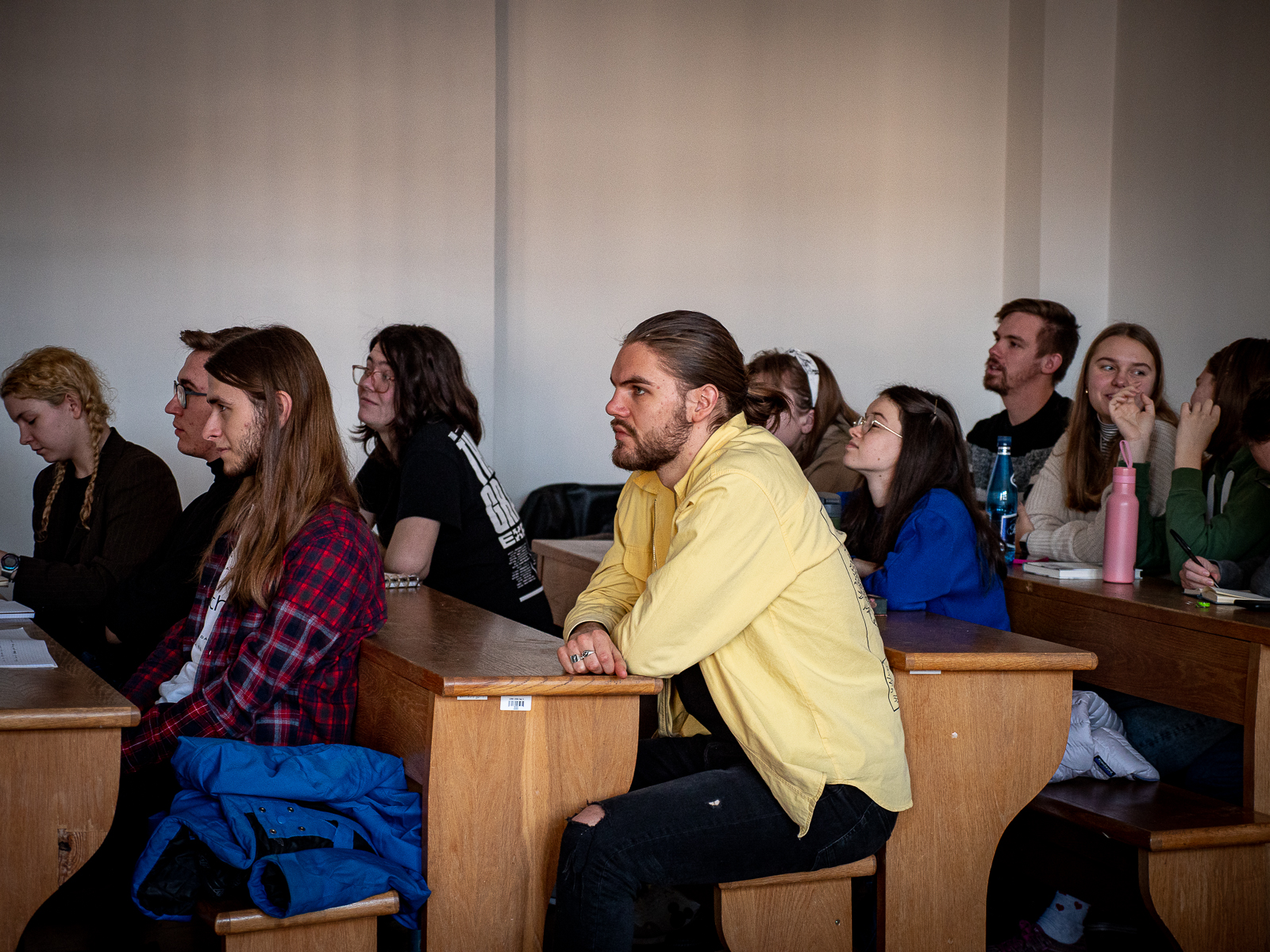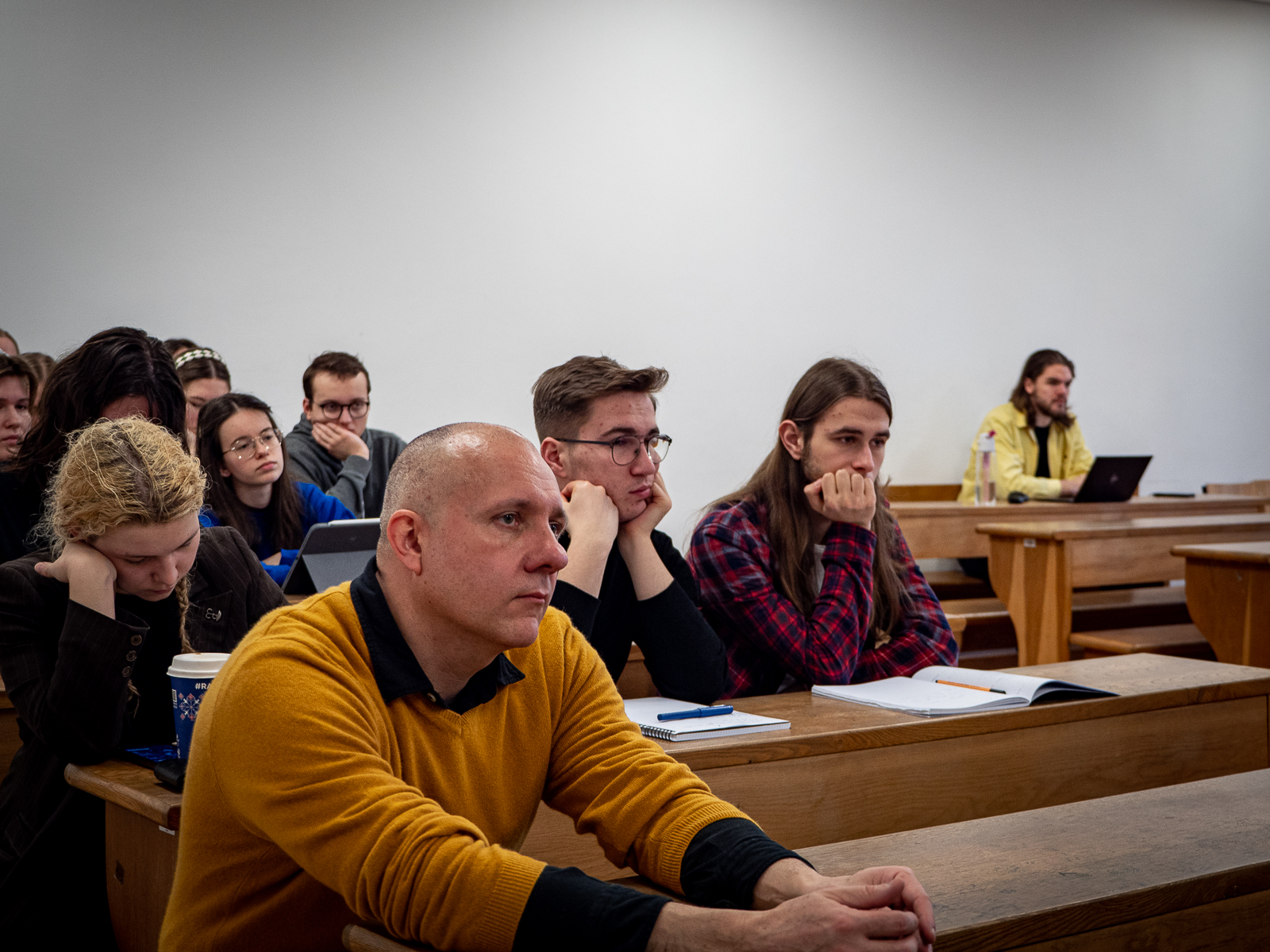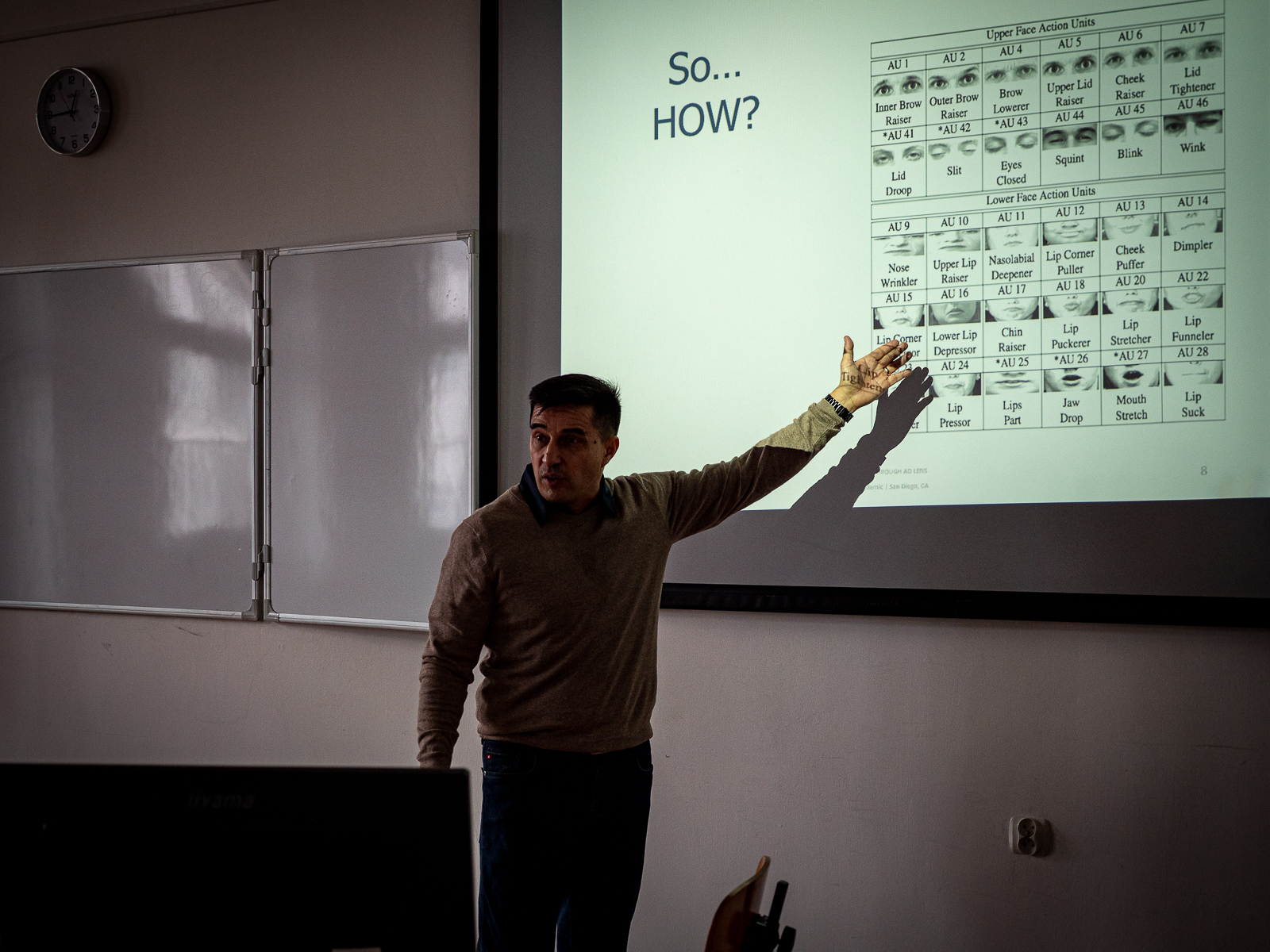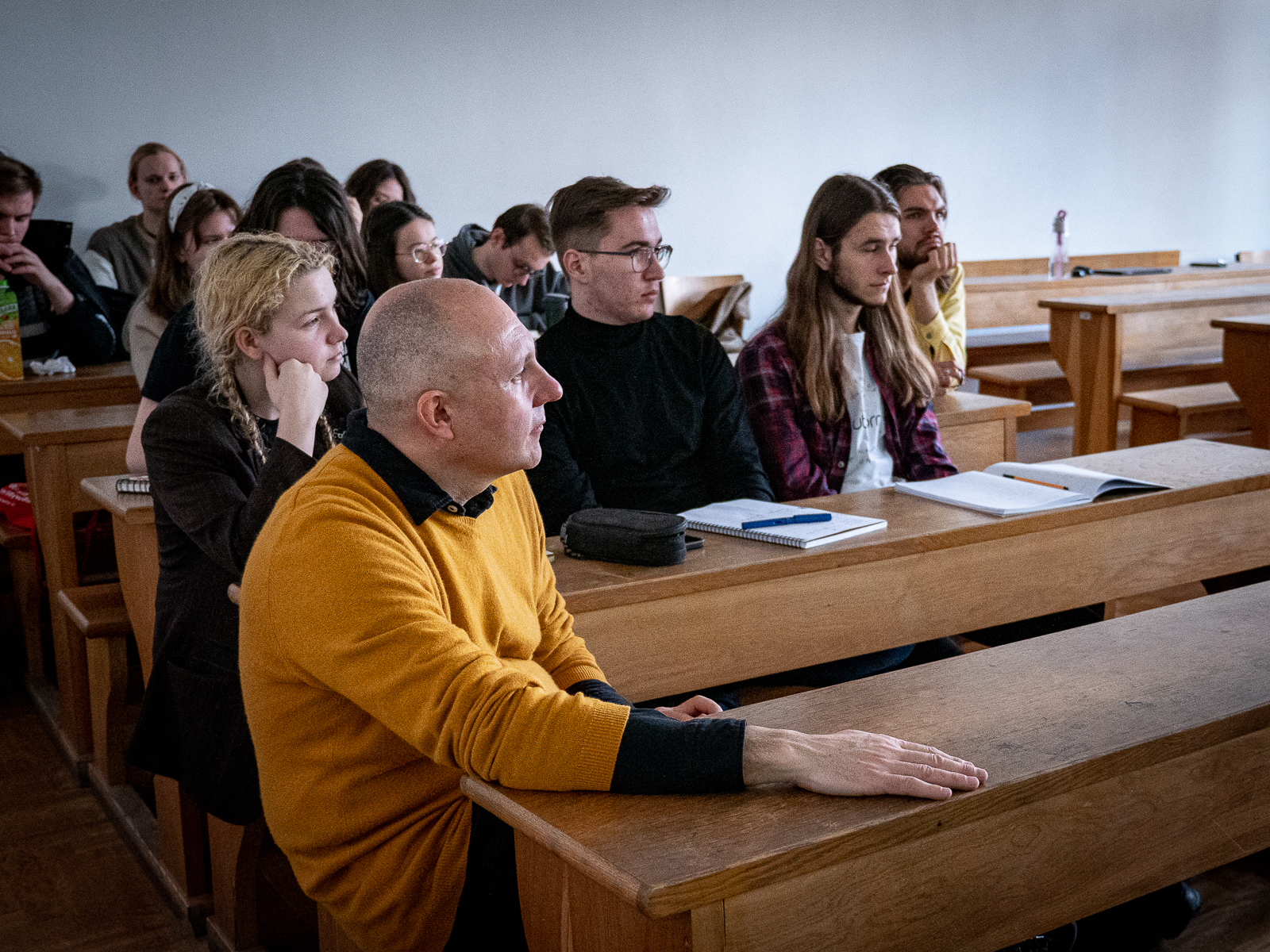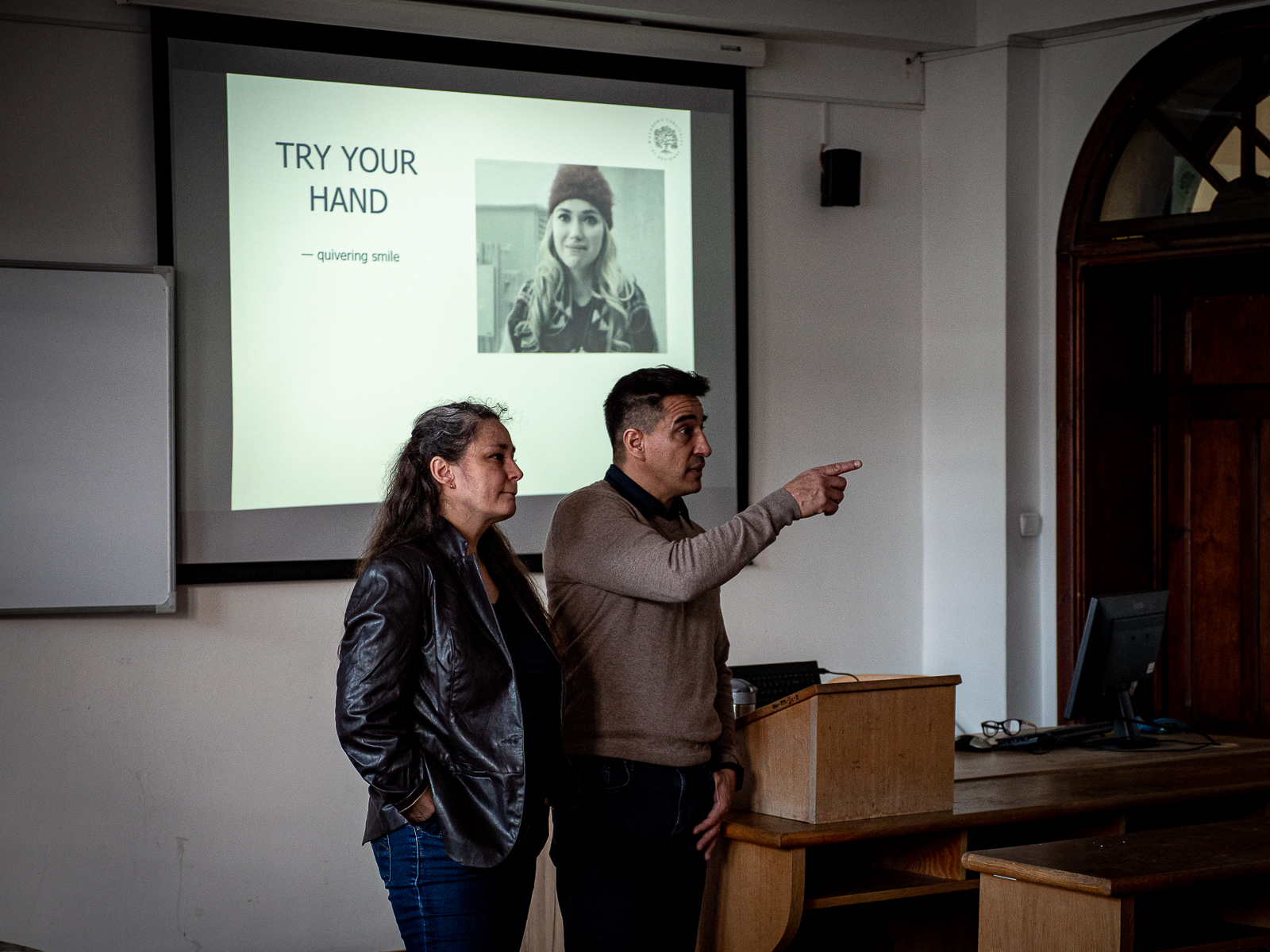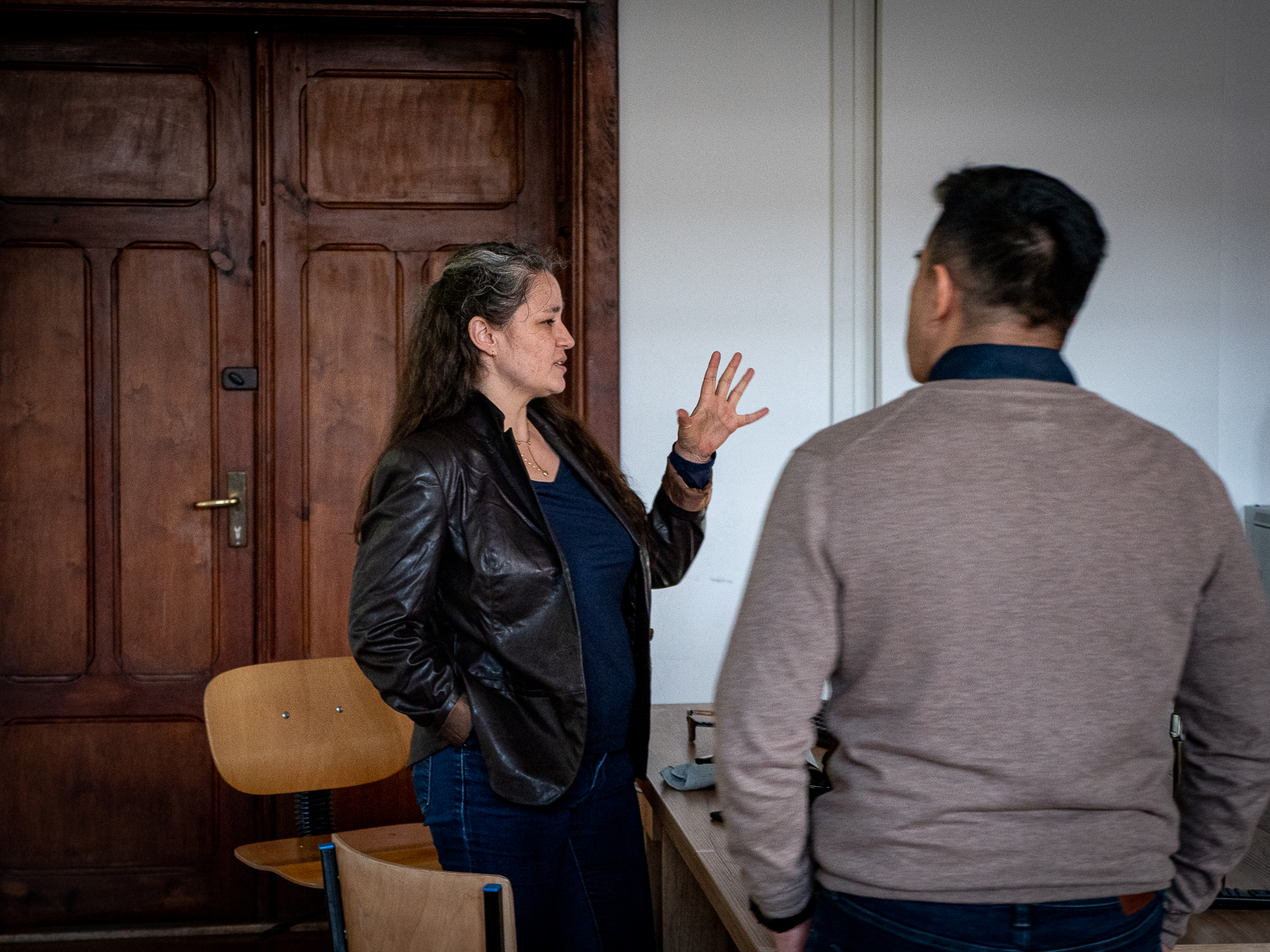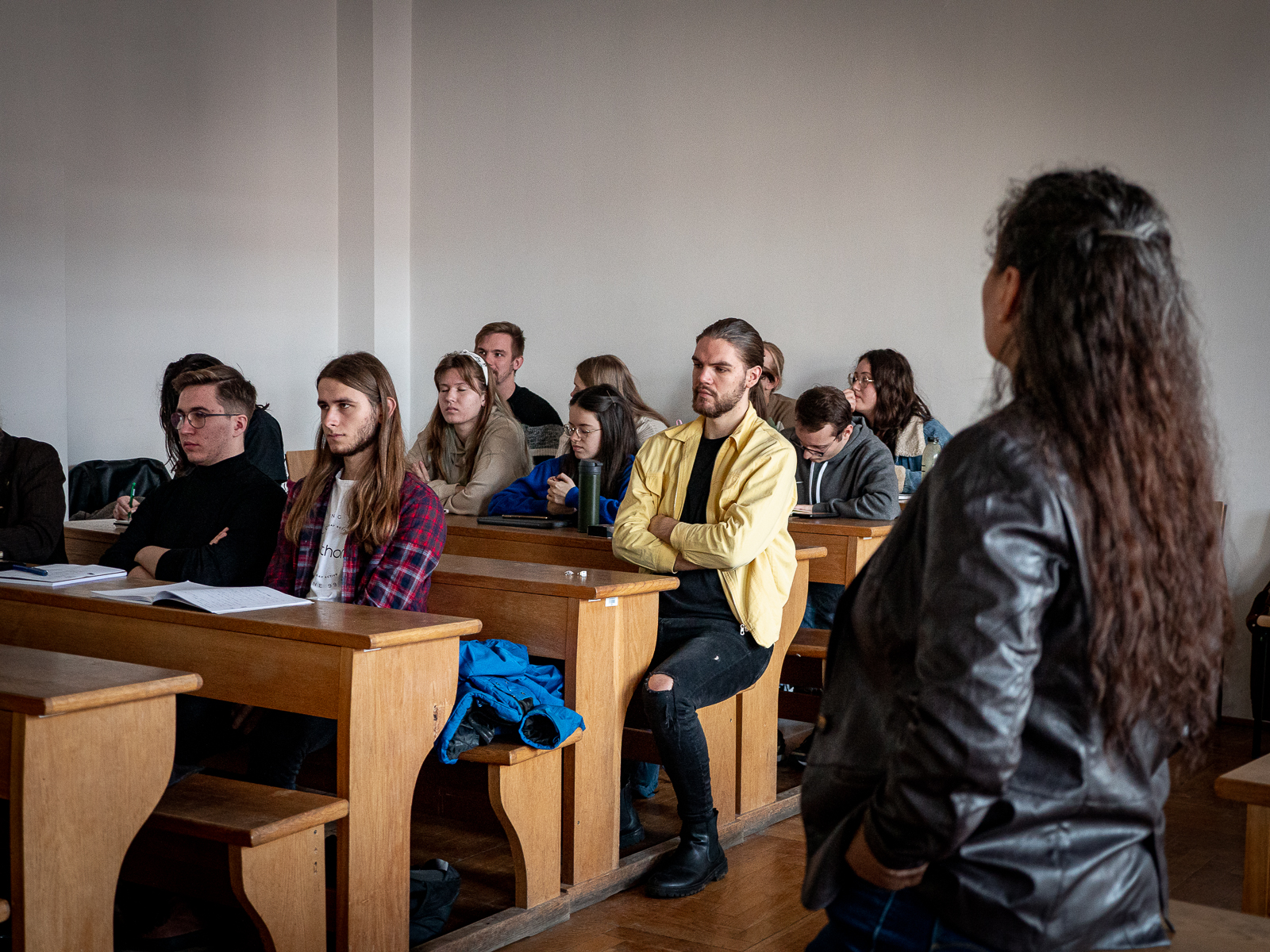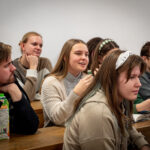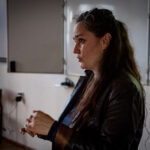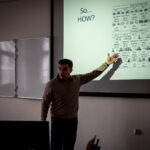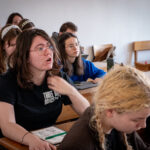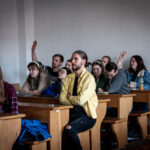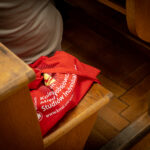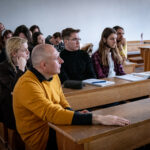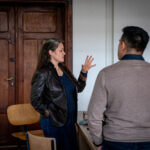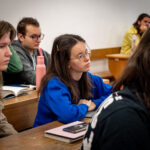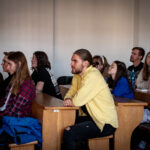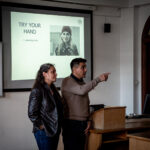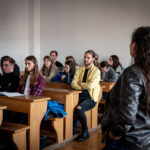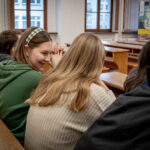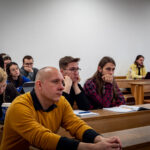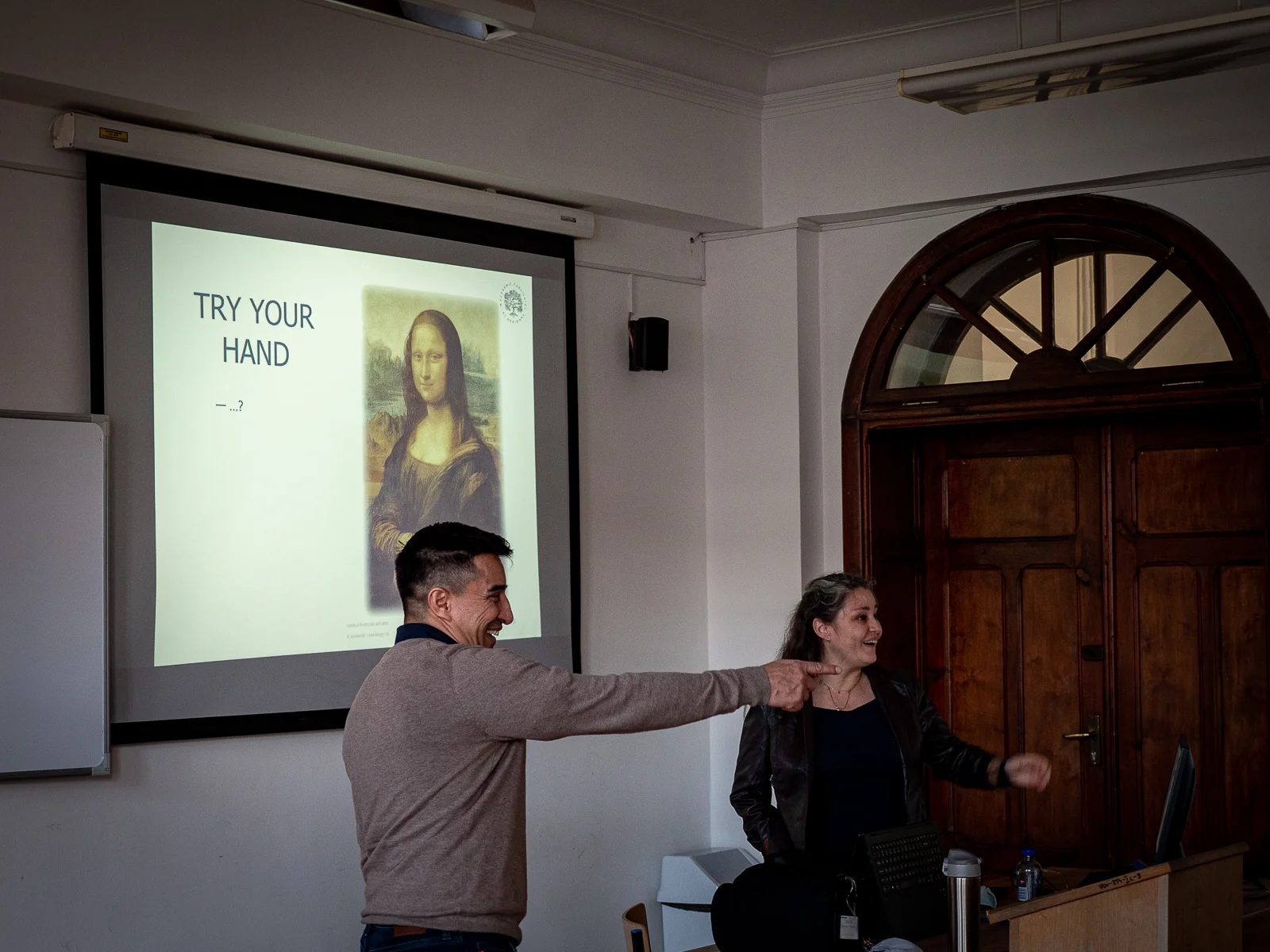
Beyond Language: lecture about audio description
The audio description gives blind people a chance to participate in social life; it offers a chance to access movies, series, works of art, in other words: products of culture, which we healthy people use daily. What is essential, a good audio description is a vivid explanation of what is happening on the screen, and it is not closed: it leaves the interpretation to the blind audience. It is supportive technology, it enhances the ability to observe, but it never replaces it. With this approach, a blind person can interpret what is shown on the screen the same way as a sighted person. Thanks to a properly prepared audio description a blind person can estimate an equal footing with a sighted person – decide for themselves whether they like or dislike a film, a TV series or a work of art and why. But is the audio description only for blind people? It was created for people with visual disabilities; however, anyone can use it.
On 5 January, the Institute of English Studies UWr hosted a unique lecture by dr Joanna Esquibel and Mr Dominic Esquibel of Æ Academic Publishing of San Diego, California. Their lecture was another in the series of Beyond Language organised for several years by professor Piotr Chruszczewski, head of the College of Individual Interdisciplinary Studies and an employee of the Institute of English Studies.
“Audio description opens a window to the world, and this is not just a phrase. Audio description not only shows the whole world to blind persons but also affects our imagination, affects the imagination of everyone who listens to it, if it is well written, if it is well thought out. It is a field which is constantly developing. There is no one single guru who knows how to do it.” Dr Joanna Esquibel told us after the lecture. She and her husband – Dominick Esquibel, have to credit about 1000 audio descriptions to the movies and series and hundreds of audio descriptions to the works of art told us after the lecture.
“The most difficult thing in creating the audio description is to forget about yourself and remember about that what we describe. It is impossible to eliminate subjectivity completely, one’s view of the world. Even if somebody lives with another person, thinks alike, has the same point of view of the world, and believes in the same things, two people look at certain things differently. Everyone tells a different story about reality to people who have not seen a given situation because they, for example, are blind. It is essential to consult blind people when creating the audio description. Their help is invaluable. Audio description is interdisciplinary; research on it is conducted by linguists, psychologists, and Polish language specialists. In creating an audio description, for example, the experience of investigators who analyse body language is beneficial… My husband has such a skill; he sees an incredible number of details and notices points that I have not seen. That is why working with him is inspiring.”
The lecture series ‘Beyond Language – Humanities without borders’ is a joint initiative of the College of Interdisciplinary Studies of the UWr, Institute of English Studies of the UWr and the Philology Committee of the Wrocław Branch of the Polish Academy of Sciences. Meetings are held regularly in room 207, IFA UWr, ul. Kuźnicza 22. The lectures are highly popular, especially among our university students, but they are open to the public.
“Beyond Language series was started a few years ago. We have hosted until now: prof. Tadeusz Sławek: Emeritus Professor and Rector of the University of Silesia, Polish and English philologist, musician and regular correspondent of “Tygodnik Powszechny”; Bente Kahan: Norwegian singer, actress, playwright, founder of the Bente Kahan Foundation, whose main aim is to present Jewish culture and history to a broader audience, mainly in Wrocław and Lower Silesia, and to restore the historic White Stork Synagogue; prof. Elżbieta Muskat-Tabakowska from the Jagiellonian University: polyglot and translator of Norman Davies’ works; prof. Tomasz Krzeszowski: the best-known thinker among linguists, a figure widely known in contemporary linguistic scientific circles in Poland and abroad; prof. Aleksander Szwedek, philologist specialising in English linguistics, cognitive linguistics and discourse analysis. A lecture in the Beyond Language series was also given by the late prof. Jan Cygan, who founded the Wrocław English Department. The editor Father Adam Boniecki gave his lecture twice at the Wrocław English Department about how “L’Osservatore Romano” was made at the request of the Holy Father John Paul II. When we hosted prof. Bogusław Bednarek, who does not need to be introduced in Wrocław, we were visited by teachers from friendly schools from Bystrzyca Kłodzka, Góra, Syców, Żary. There were hardly any free places available.” Professor Piotr Chruszczewski, the initiator of the Beyond Language lectures, told us.
“We plan to invite again the editor Jacek Hugo-Bader, who calls himself “pavement reporter” and who kayaked across Lake Baikal, cycled across the desert and crossed Siberia in winter; prof. Marcin Majewski from Kraków, who will tell us about censorship in the Bible; prof. Rafał Dymczyk from UAM (University of Adam Mickiewicz), who is one of the few people in Poland to have visited all the monasteries on Mount Athos. This year we still have lectures from introduction to oral literature, semiotic view of culture, and cultural studies, which will be given to us by prof. Leszek Pułka and prof. Wojciech Soliński. The lectures are open; everyone is very welcome!”
The following lecture, entitled ‘Iter Romanum – a literary description of Maciej Kazimierz Sarbiewski’s journey through 17th-century Europe’, will be given by prof. Rafał Dymczyk of the UAM, location: IFA, Kuźnicza 22, room no. 207, date: 12 January (Thursday) 2023 at 10:15 a.m.
Information about further Beyond Language lectures will be regularly published on the College of Individual Interdisciplinary Studies site.
I used Joel Snyder’s book ‘Turning images into words. Around the history and contemporary uses of audio description’ (Æ Academic Publishing).
Text and photos: Agata Mitek
Translated by Monika Łobodziec (student of English Studies at the University of Wrocław) as part of the translation practice.
